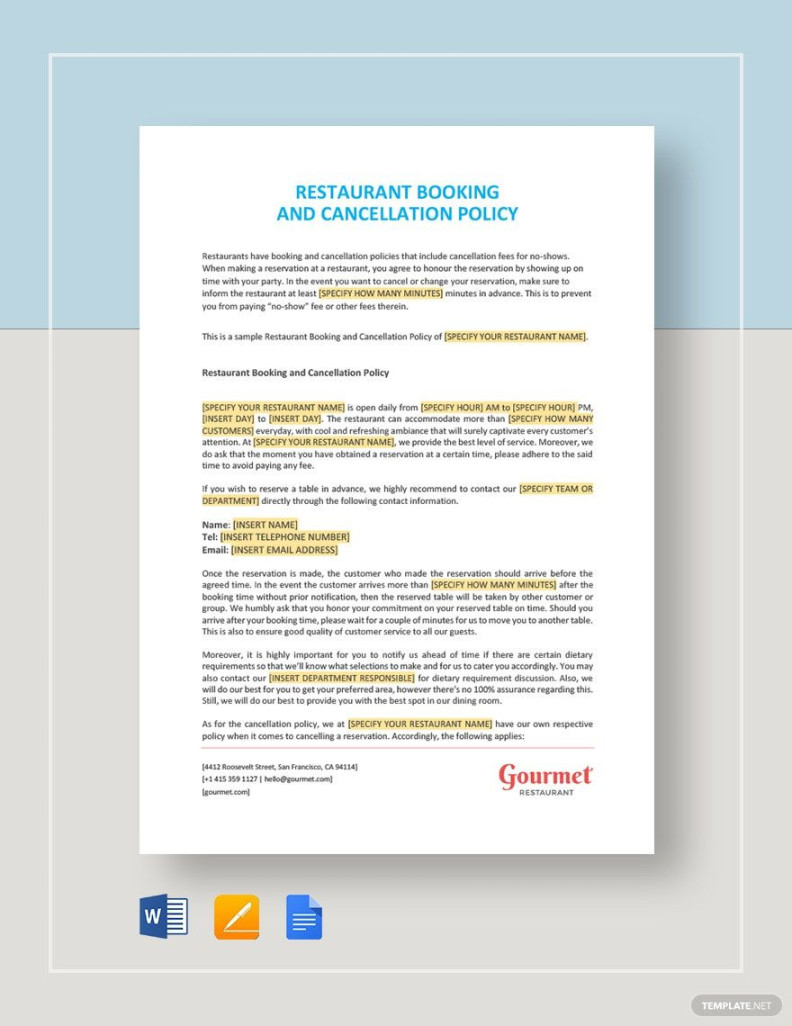A well-crafted booking cancellation policy is a crucial component of any business that relies on reservations or appointments. It outlines the terms and conditions for canceling or modifying bookings, protecting both the business and the client. This guide will provide you with the essential elements and design considerations to create a professional and effective booking cancellation policy template.
Core Elements of a Booking Cancellation Policy
Cancellation Fees:
Clearly state any fees associated with cancellations. These fees can vary depending on the type of booking, the time of cancellation, and other factors. Ensure transparency by outlining the specific fee structure.
Specify the required notice period for cancellations to avoid penalties. This period can be a fixed number of days or hours before the scheduled booking.
Detail the refund process, including the methods of refund (e.g., credit, cash, or store credit) and the timeframe for processing refunds.
Address situations beyond the control of either party, such as natural disasters or unforeseen circumstances. Outline how these situations will be handled, including potential waivers of cancellation fees.
Explain the process for modifying or rescheduling bookings. Specify any limitations or fees associated with these changes.
Outline the consequences of failing to show up for a booking without prior cancellation. This might include fees or restrictions on future bookings.

Image Source: template.net
Design Considerations for a Professional Template
Clear and Concise Language:
Use clear and concise language to avoid confusion. Avoid legal jargon and complex sentence structures.
Consistent Formatting:
Maintain consistent formatting throughout the policy. Use a clear and easy-to-read font, such as Arial or Times New Roman.
Professional Typography:
Choose a professional font that conveys credibility and trustworthiness. Avoid overly decorative or playful fonts.
White Space:
Use ample white space to improve readability and make the policy visually appealing.
Headings and Subheadings:
Organize the policy into clear sections using headings and subheadings. This will help readers quickly find the information they need.
Bullet Points:
Use bullet points to break up text and highlight key points.
Professional Layout:
Design the policy with a clean and professional layout. Avoid cluttered designs that can be overwhelming.
Example Template Structure
Cancellation Policy
Cancellation Fees
Cancellation Notice Period
Refund Policy
Force Majeure
Modifications and Rescheduling
No-Show Policy
Additional Tips for Creating an Effective Policy
Review and Update Regularly:
Review and update your policy periodically to ensure it remains current and accurate.
Make your policy easily accessible on your website or in your booking confirmation emails.
Ensure your staff is well-trained on the policy and can answer any questions from clients.
While it’s important to have a clear policy, be flexible and understanding in exceptional circumstances.
By following these guidelines, you can create a professional and effective booking cancellation policy that protects your business and provides a positive experience for your clients.